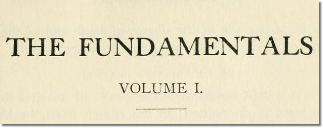The Ministry of the Holy Spirit in Christ
While the Holy Spirit has an incredible ministry directly to believers, that is certainly not His only role. Before the Spirit’s present ministry in the church, He also interacted with Christ in several profound ways. As we understand the relationship of Christ and the Spirit, and their relationship to the Father, we can be encouraged and strengthened, knowing that we also have a relationship with all Three, and that they are doing amazing things so that we can have life (Eph 1:3-14), and walk with Him (Jn 17:3).
His Purpose in Christ
The Holy Spirit bore witness to the fact that Christ was sent from the Father, and by so doing provided a testimony to Israel that Jesus was indeed the Messiah. Note the fourfold witness identified in John’s gospel: (1) John (Jn 5:33-35) was the forerunner prophesied by the Holy Spirit (Mal 3:1; Lk. 1:67-79), (2) Jesus’ works (Jn 5:36), many of which were accomplished in the power of the Holy Spirit, (3) the Father (Jn 5:37-38)—through His word, which is the sword of the Spirit (Eph 6:17), and finally, (4) the Scriptures (Jn 5:39-47), which are the words and testimony of the Spirit (Is 59:21; Zech 4:6; Acts 21:11; 1 Tim 4:1; Heb 3:7; 9:8; 10:15; Rev 2:7, 11, 17, 29; 3:6, 13, 22). His words were provided by method of inspiration—or God breathing (2 Tim 3:16), as He moved men to speak His word (2 Pet 1:20-21).





 [node:22019 collapsed body]
[node:22019 collapsed body]
Discussion